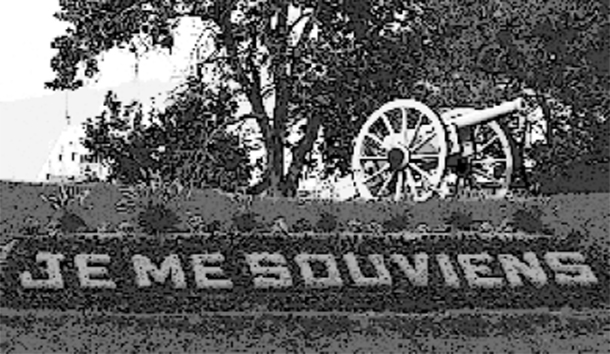In 1976, when the separatist Parti Québécois (PQ) won the majority of seats in Quebec’s National Assembly, giving it control of the provincial government, many thought that the party’s goal was to save French culture and the French language in Canada. It is, however, much more complicated than that.
The PQ was founded in 1967 by the ex-Liberal minister René Lévesque. It espoused three principles: social democracy, “sovereignty association” (a separate government that maintains economic ties with Canada), and the preservation of the French language. But the Parti Québécois was not a nationalist party created to separate Quebec from the rest of Canada. The charismatic Lévesque had served as a war correspondent in France and Germany during World War II, and his experience of Nazism turned him against nationalist movements.
The PQ sought to establish a secular modern state defined by “civic nationalism,” not a state linked to a specific ethnic group. A few months after taking power, the PQ passed Bill 101, La charte de la langue française (The Charter of the French Language). The Liberal government’s Bill 22 (1974) had declared French to be the only official language of Quebec, but this law had been challenged by McGill University legal scholars as a violation of the British North America Act (1867), which made English an official language of Canada, and the Official Languages Act of 1969, which guaranteed bilingualism. The PQ’s Bill 101 reaffirmed Bill 22’s elevation of French as the official language of Quebec. It mandated that all commercial signs be in French and that all francophone and non-English-speaking children go to French-speaking elementary and high schools. The historic English-speaking minority of Quebec, around 20 percent of the population, could keep its institutions, schools, and hospitals, but these could be used only by members of the English-speaking community. The hysteria among anglophones in Quebec that followed the passage of this bill led to an exodus of hundreds of thousands of citizens to Toronto or New York. Many important businesses also left Montreal for Toronto, increasing the demographic and economic gap between the two cities. (While both had the same population in 1960, Toronto now has twice that of Montreal.)
The PQ minister of culture, Dr. Camille Laurin, was the author of much of Bill 101. Some extremist members of the PQ plainly wanted to abolish the English-speaking schools and hospitals, as did the great orator of the separatist movement, Pierre Bourgault. But Lévesque, who felt some sympathy for the English-speaking community, threatened to resign as leader if the PQ adopted such a hard line. Lévesque was perfectly bilingual, raised in an English-speaking village of the Gaspésie. He had a great admiration for the Americans, who had, after all, won World War II, as well as for their democratic institutions. However, Laurin convinced Lévesque to accept Bill 101 in order to maintain the unity of the party and the government.
Before 1976, most immigrants—Jews, Greeks, Italians—would, upon arrival, join the English-speaking community of Montreal. The French Canadians were able to hold firm even in metropolitan Montreal, the only large city of the province, because of their high birthrate and increasing rural migration. By 1976 the Baby Boom had long been over, and PQ intellectuals, anticipating the loss of French at the hands of a new burgeoning English-speaking population, wanted immigrants to join the French-speaking community. This is why the provision forcing non-English-speakers to attend francophone schools was so important.
The PQ did not, however, care much about history and the traditional culture of French Canadians. That culture was too clerical, too Catholic, too rural, too antistate. One French Canadian historian, Michel Brunet, had declared in the 1960’s that the three principles of French-Canadian history had always been “agriculturism, anti-statism and messianism.” This was the opposite of the modern “Québécois,” the modern “non-ethnic” name for French Canadians that appeared around the same time. In the new school system implemented by the Liberal government in 1960, history, literature, Greek, and Latin were not deemed important anymore; the humanities (taught by priests for three centuries) were no longer relevant. The new school system was functionalist and pragmatic, emphasizing science, much like an American high school. The PQ continued this policy after 1976.
By the 1970’s, the French Canadian identity was in crisis. Although the PQ government force-fed the population with French, it was little concerned with the quality of the language. The PQ had successfully made French the sacred cow of Quebec, but it did not defend Quebec’s culture, its tradition, its history, or its Roman Catholic religion. In the late 1970’s, the Canadian government accepted an agreement with the PQ allowing Quebec to create a point system to determine which new immigrants it would accept. French-speakers were awarded more points. Thus, the French language effectively became the sole determining cultural criterion for admission to Quebec. In the 1980’s, numerous immigrants from Morocco, Tunisia, and Algeria began to arrive in French Canada, and they continue to come.
Last September, at the beginning of the new academic year, the Journal de Montréal announced that a majority of students in Montreal public high schools now speak English or a foreign language. A majority of them will go to college and university in English and will join the English-speaking community. Some PQ militants, including ex-premier Bernard Landry, now argue that French should be mandated in Quebec’s colleges as well.
With massive immigration, on the one hand, and the low birthrate of French Canadians after 1980 (fewer than 1.5 children per woman), on the other, it is clear that language laws are not enough. Only a moral and intellectual reform of the French Canadian nation, one that would strengthen families, recover the national and educational tradition, and improve the quality of French, can “save French” in North America.

Leave a Reply